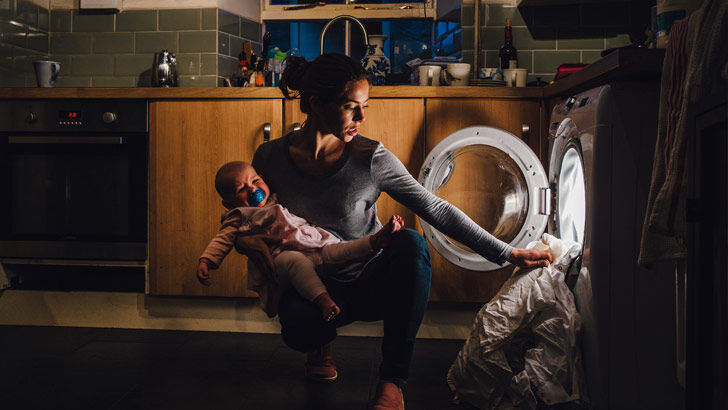Where to get help if you're struggling to pay your bills
By Susan Hely
With the cost-of-living rocketing with rising inflation, the government's $420 cost of living tax offset is already factored into most people's overstretched budgets. The $420 goes to around 10 million people and was announced in the March federal budget. It is due from July 1 this year when you lodge your tax return.
Inflation is estimated to reach 6% in the second half of the year and people's wages haven't moved higher to keep up with it.
What help is there for Aussies struggling to afford basic essentials?
Power bills
Around 44% of Australians pay more for power and, with winter approaching, 20% of Australians are worried they will be disconnected from the grid because they can't afford further increases in energy bills, according to research by Mozo.
It is time to review your energy bill to take advantage of some of the special offers, recommends Mozo, saying that 23% of Australians have never examined and compared the prices charged by their power company to other providers.
Also check out some of the electricity rebates and discounts from state governments that can help household budgets.
For example, the NSW family energy rebate of up to $180 is available to NSW residents who receive the family tax benefit (FTB) for the previous financial year.
It also offers $200 rebate to eligible independent self-funded retirees who hold a Commonwealth seniors health card to help cover the cost of their electricity. See: service.nsw.gov.au/campaign/savings.
Victoria offers 11 different rebates and concessions on both electricity and gas for eligible concession card holders including a $250 one off payment called the Power Saving Bonus. See: services.dffh.vic.gov.au/energy.
Everyday costs
Check with your state government to see what rebates are on offer to help you save on everyday costs. For example, the NSW Government has 70 different rebates ranging from travel cards for seniors, toll relief, swimming lessons, sport and fitness vouchers and vouchers for creative activities for kids.
Some of the popular rebates include the regional seniors travel card that provides eligible seniors living in regional, rural and remote areas of NSW with a $250 prepaid card to help ease the cost of travel. Toll Relief is designed to help owners of privately registered vehicles who are frequent toll road users save on their registration costs.
There is also toll relief that gives drivers free vehicle registration who have spent over the yearly threshold on tolls in the previous financial year.
As well, drivers who've spent the minimum threshold amount during the previous financial year will be eligible for half-price registration.
The Victorian Government assists more than 900,000 Victorian households to pay for vital services such as housing, water, energy, health, education and transport.
No Interest Loans Scheme
Don't hesitate to apply for an interest-free loan through No Interest Loan Scheme (NILS). You can borrow between $300 and $1500 for essential goods and services including medical procedures and dental services, education essentials such as computers, textbooks, school uniforms and course fees, car repairs or registration as well as crucial white goods such as fridges, washing machines, television or furniture.
NILS doesn't do any credit checks, charge fees or interest. It has repayments set at an affordable amount over 12 to 18 months. It is offered by more than 170 local community organisations in over 625 locations across Australia. To be eligible for NILS you must have a Health Care Card Pension Card or earn less than $45,000 a year (after tax) or $60,000 for couples or people with dependents.
Check if your needs match the NILS eligibility requirements as it doesn't cover rent, food, utility bills, cars, clothing (except school and sports uniforms), fines and insurance.
To find out more visit salvationarmy.org.au or call on 1300 551 030. Or apply at Vinnies online at vinnies.org.au or call 13 18 12.

Food relief
With rising living costs, there are more people unable to afford food. Foodbank says one in three people struggling to meet their food needs are new to food insecurity.
It says one in six adults haven't had enough to eat and 1.2 million children have gone hungry in the last year. It says that two in five people seeking food relief do not get enough food for their household.
Groups such as Oz Harvest, SecondBite and Foodbank rescue surplus food from a network of donors including supermarkets, cafes, delis, hotels and restaurants and redistribute it to around 3,000 charities around Australia.
Check with your local charity for a relief hamper or voucher or special offer to purchase food at a discount. You can book an appointment to pick up food at some relief centres.
Banks and financial services
Australian banks and financial services groups have pledged that they are ready to support customers, stressing they should come forward as soon as possible.
The Australian Bankers Association says don't tough it out on your own.
"Whatever the cause, there are practical ways your bank can help you out of financial difficulty."
The banks assistance depends on individual circumstances and includes:
- A deferral of scheduled loan repayments
- Waiving fees and charges, including break costs on early access to term deposits
- Deferring interest payments on a case-by-case basis
- Debt consolidation to help make repayments more manageable.
What to do if you need assistance
- Contact your bank or financial service provider
- Explain your situation and the assistance you're asking for
- If your request is denied, you can contact Australian Financial Complaints Authority for help on 1800 931 678 and visit afca.org.au.
Get stories like this in our newsletters.



